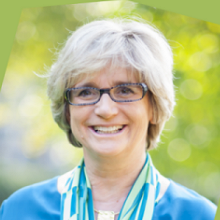Thanks to improved screening and treatment more and more patients are surviving cancer. More than ever, cancer is an illness that the patient must learn to live with. Nevertheless, after treatment the consequences of cancer and the treatment are still felt physically and mentally and in family, social and professional life. The transition between curative treatment and the post-treatment stage can be problematic but is crucial to long-term health.
At the Jules Bordet Institute post-treatment care is adapted to the individual needs of each patient. A range of support is proposed, in addition to the medical follow-up. Psycho-oncologists, the pain clinic, physiotherapists, speech therapists and dietitians can be consulted during and also after treatment. These professionals accompany the patient in various aspects of their post-cancer life: the return to work, anxiety management, self-esteem, sexuality, diet, resumption of physical activity and self-confidence.
This multidisciplinary support provides the patient with a global yet personalised care.
Medical care after cancer
After treatment, when medical examinations show no more sign of cancer, the patient is considered to be in remission. It is then that post-cancer care begins.
to keep an eye on the physical and psychological state of the patient
- to manage any medium or long-term secondary effects of certain treatments
- to detect any recurrence as soon as possible
- to identify any new cancer.
Recurrence means that cancer cells reappear after a period of remission that can vary from a few months to several years. It can also happen that the same patient develops different cancers several years apart. In all these cases, the earlier a recurrence or cancerous disease is detected, the faster a new therapeutic strategy can be offered.
At the start, patients in remission are closely monitored. For at least a year, they are seen every 2 to 4 months by their different doctors, most often alternately (oncologist, radiotherapist and/or surgeon). During this period, depending on the type of cancer, different examinations may be carried out: blood analysis, CT scan, endoscopy, MRI, PET scan, etc. If necessary, each patient’s case can be discussed again by the Multidisciplinary Oncology Team.
Follow-up cancer care is not simply medical: it can also involve a psychologist, among other health professionals. Problems and secondary effects can appear months or even years after the disease. Which is why the Institut Jules Bordet offers a range of support (cancer psychologists, pain clinic, physiotherapists, speech therapists, dieticians, etc), available to patients during and after their treatment.
If there is no recurrence of cancer, follow-up appointments become less frequent. Their frequency and the examinations carried out depend on the level of risk of recurrence and the type of cancer affecting the patient. In the majority of cases, during the early years, patients are seen by their referring doctor(s) every 3 to 6 months. Then, monitoring is done on an annual basis.
In some cases, follow-up care can be given partly or entirely outside the Institut Jules Bordet by an external specialist doctor (dermatologist, gynaecologist, etc) or by the patient’s GP.
After several years of remission, the patient is considered to be cured of their cancer. However, in most cases, an annual follow-up is recommended throughout their life and not only to detect a relapse or identify a possible new cancer. Certain treatments in fact require long-term medical supervision. For example:
- Hormone therapy, prescribed for certain breast and prostate cancers, is a long-term treatment. Its possible secondary effects (hot flushes, weight gain, etc) can be treated.
- The doses of thyroxin, a thyroid hormone that has to be taken for life following thyroid ablation, sometimes require adjustment (in the event of pregnancy, for example).
- Some cancer treatments (chemotherapy, immunotherapy, radiotherapy, etc) can cause specific acute or chronic toxicities, sometimes delayed, which must be treated by a specialist.
Support programs
Tailor-made programmes to support patients who have completed acute treatment during their post-cancer period
RESTART PROGRAMME
The RESTART programme favours a more rapid and lasting rehabilitation of breast cancer patients by providing them with the key information and tools necessary to increase their autonomy, offset persistent side effects and limit the risks of the cancer returning.
The programme includes psychological support, educational workshops, physical exercise sessions and guidance in restoring body image.
The programme RESTART was developed in cooperation with Oncobulle : https://www.oncobulle.eu/
Clinic for long-term follow up haematology
The clinic for long-term follow up proposes multidisciplinary and holistic follow up for adolescents, young adults and adults following a haematological cancer (lymphoma, leukaemia, myeloma, etc.). These patients are in remission and no longer following active treatment, apart from a possible maintenance medication.
The H.U.B’s Long-Term Follow-Up Clinic is staffed by specialist doctors, physiotherapists, oncology psychologists, neuropsychologists, coaches and partner patients.
BRUSSELS 20 KM
Some 20 Institute patients and their carers took up the challenge of participating in the Brussels 20 km. Who said that cancer and sport are incompatible? Certainly not them!
A challenge that enables patients to practice a physical activity, surpass themselves, forge bonds and dispel prejudices surrounding the disease.
PROGRAMME OF PHYSICAL ACTIVITIES
This programme offers patients an introduction to a range of physical activities within an adapted and individualised framework that takes into account the treatment received, the nature of the illness and the psychological condition of each patient.
INFORMATION VIDEOS (MEDIFY)
In a series of videos Institute professionals present themes associated with cancer and the post-cancer period, such as parenting, dietetics, oncogenetics, side effects, chemotherapy, etc.
